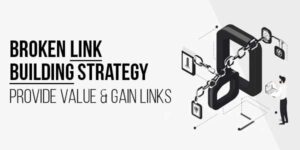
In an increasingly competitive and constantly changing business world, demand planning software has become a fundamental part of the success of any company. Demand for products and services can fluctuate unpredictably, making the ability to anticipate and effectively manage this demand essential to staying competitive in the marketplace.
This is where demand planning software comes into play, a tool that has gained relevance in business management and has become a fundamental ally for companies seeking to optimize their operations and maximize their income.
Table of Contents
What Is Demand Planning Software?
Demand planning software is a technological solution that helps companies forecast and manage their inventory and production needs more efficiently, as it analyzes, anticipates, and plans future demand for products or services.
Thanks to this information, company leaders can make better decisions and establish strategic actions related to the supply chain, production, inventory management, and marketing strategies.
Supply Chain Stages:
The success of a company depends largely on its ability to effectively manage the supply chain. The fundamental stages in this process are essential to guarantee product availability and meet demand efficiently. Below we break down the key stages of the supply chain and their importance:
Provisioning:
In this phase, the search, selection, and acquisition of raw materials, components, or finished products is essential for the production or marketing of goods and services. At this point, you should focus on the quality of the inputs and establish solid relationships with reliable suppliers. The right choice at this stage can significantly influence the quality and cost of the final products.
Manufacturing:
The manufacturing phase is where the components and raw materials acquired in the procurement stage are transformed into final products. Through transformation and assembly processes, the desired product is created.
In addition, quality is rigorously verified to ensure that it meets established standards. This stage is critical as it directly affects operational efficiency and customer satisfaction.
Storage:
When goods are manufactured, they are stored in a distribution center or warehouse before being delivered. Proper inventory management is essential at this stage.
It must be ensured that there is sufficient availability of products to meet demand, avoiding both shortages and excess stocks that could generate unnecessary costs. Optimizing this phase is key to maintaining the balance between availability and costs.
Delivery:
The delivery stage is the culmination of the supply chain, where products move from warehouses to points of sale or directly to customers.
Logistics plays a fundamental role here, involving the planning, coordination, and execution of activities such as transportation, packaging, labeling, and delivery. Efficient delivery is essential to meeting delivery deadlines, reducing costs, and meeting customer expectations.

Demand Planning Software: Key Aspects:
The development of successful demand planning software requires the consideration of a series of fundamental aspects that will allow your company to anticipate and adapt to changing market dynamics. Below we highlight the key aspects to take into account:
Establishment Of KPI Indicators:
To begin, it is essential to define the Key Performance Indicators (KPIs) that will serve as a guide to evaluate and maintain optimal inventory levels. These KPIs should be based on historical data and tailored to your company’s specific needs.
Product Catalog Analysis:
Understanding the nature of your products is crucial. You should consider whether you work with seasonal variables, demand peaks at certain times of the year, launches of new versions or discontinuation of models. This understanding will help you adjust your projections and inventory management strategies more accurately.
Competitor Study:
Staying aware of your competitors’ actions is a smart strategy. Observing which products they promote the most or what movements they make in the market can provide valuable information to refine your demand planning strategy.
Advanced Technology Integration:
Data collection is essential, and in this case, the use of technology is essential. The implementation of cloud-based solutions and integration with warehouse management software (WMS) and ERP systems will allow you to have complete control over stock, its origin, location, and destination.
Interdepartmental Collaboration:
Success in demand planning depends largely on collaboration between departments. Organize regular meetings with production, logistics, and marketing teams to maintain a constant flow of sales information and adjust your projections according to real needs.
Flexibility:
The business environment is constantly evolving. Therefore, you must maintain an open and flexible mindset to adapt to unforeseen changes. And make sure your strategies and decisions can be adjusted quickly in response to changing conditions.
There are different systems applied to demand planning software on the market. Next, we will mention some technologies applied to supply chain planning:
Production Planning Software (APS):
Advanced planning and programming software (APS) are used as complements to ERPs. By integrating into the ERP, the APS can use its information to make calculations and simulations. In addition, this type of system allows companies to create detailed production plans where aspects such as customer demand, inventory levels, production capacities, and resource constraints are taken into account to create optimized production programs.
Enterprise Resource Planning (ERP) Systems:
ERP systems are another example of use cases since they integrate and centralize information from the different areas of the company, such as production, administration, purchasing, sales, finances, and human resources. In this way, in the supply chain, this type of system improves coordination and communication between all stages, thus improving operational efficiency and data-based decision-making throughout the organization.
Warehouse Management Systems (WMS):
Another option available on the market is the WMS system, which allows companies to have complete warehouse information and at the same time streamlines the main warehouse processes. With this solution, you will be able to cover needs such as: receiving, collecting, counting, and moving items, etc., thereby achieving greater storage performance in the organization.
Internet of Things (IoT):
The IoT in the supply chain serves to monitor the status and location of products, since this system deals with the connection between devices and everyday objects to the Internet, to collect and share data. In this way, equipment maintenance is optimized and the efficiency of production and distribution is improved.
Artificial Intelligence (AI) And Machine Learning:
AI and Machine Learning optimize production planning, forecast demand, and help prevent supply chain problems before they occur. One of the advantages of applying these technologies in your business is that they allow you to have a global and real-time vision of production and the supply chain as a whole.
In addition to achieving greater productive efficiency, and flexibility, they adapt quickly to changes in demand. They improve customer service and optimize available production capacity.
Benefits Of Planning Demand Software:
1.) Operational Efficiency:
The careful and accurate planning facilitated by demand planning software leads to more efficient coordination at all stages of the supply chain. This translates into a substantial reduction in production and delivery times. Optimizing processes and eliminating bottlenecks contribute to a smoother and more efficient workflow.
2.) Cost Reduction:
Cost reduction is another key benefit of demand planning. By accurately forecasting inventory and production needs, companies can avoid unnecessary costs related to excess stock storage and product obsolescence. Additionally, more efficient supply chain management reduces overall operating costs.
3.) Product Quality Improvement:
Demand planning is not only about quantity but also about quality. By anticipating customer needs, companies can focus on producing high-quality products that meet market expectations. This improves company reputation and customer satisfaction, which can translate into increased loyalty and sales.
4.) Greater Visibility And Control:
Demand planning software provides greater visibility throughout the entire supply chain. This means businesses can effectively monitor product movement, stock, and demand levels in real-time. This increased visibility allows for more precise control of processes and the ability to make informed decisions promptly.
5.) Adaptability And Responsiveness:
In a dynamic business environment, adaptability and responsiveness are essential. Demand planning software allows companies to anticipate changes in demand before they occur, giving them a competitive advantage. They can quickly adjust production, supply chain, and marketing strategies to meet changing market demands.
Conclusions:
We have explored the vital role that demand planning software plays in business logistics. Now that you have a deeper knowledge about this tool, we are interested in knowing: Are you considering its implementation? At Bambú Mobile, we are not only specialists in web development, but we also have a solid track record in implementing systems like this.
We invite you to review our success stories to discover how we can collaborate in the integration of these solutions in your company.

 About the Author:
About the Author:
















Be the first to write a comment.